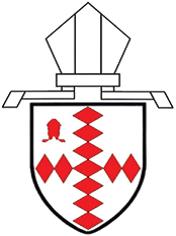Curriculum Information
The School operates a two week timetable which has 5 x 60 minute-periods in each day. There are three 30 minute tutor periods (Personal Development Time) per week as well as two Collective Worships , one as a Year group and one whole school. (for more information, see the Chaplaincy section of the School website). For detailed curriculum information please click here.
The Equality Act 2010 and Special Educational Needs and Disability (SEND) Regulations 2014 place certain duties on schools to ensure that students with SEND are able to take advantage of the same opportunities that other students have. In certain circumstances, we reserve the right to make alterations to the curriculum, if it best suits the needs of the student. For how Christ's School complies with these duties see:
In the Sixth Form (for more information, see the Sixth Form Curriculum section of the School website), each student has a combination of subject lessons, study periods and enrichment opportunities (including the Extended Project Qualification (‘EPQ’)). Sixth Form students benefit from specialist tutorials; Religious Education; Careers/ UCAS preparation and a range of other super curricular activities.


